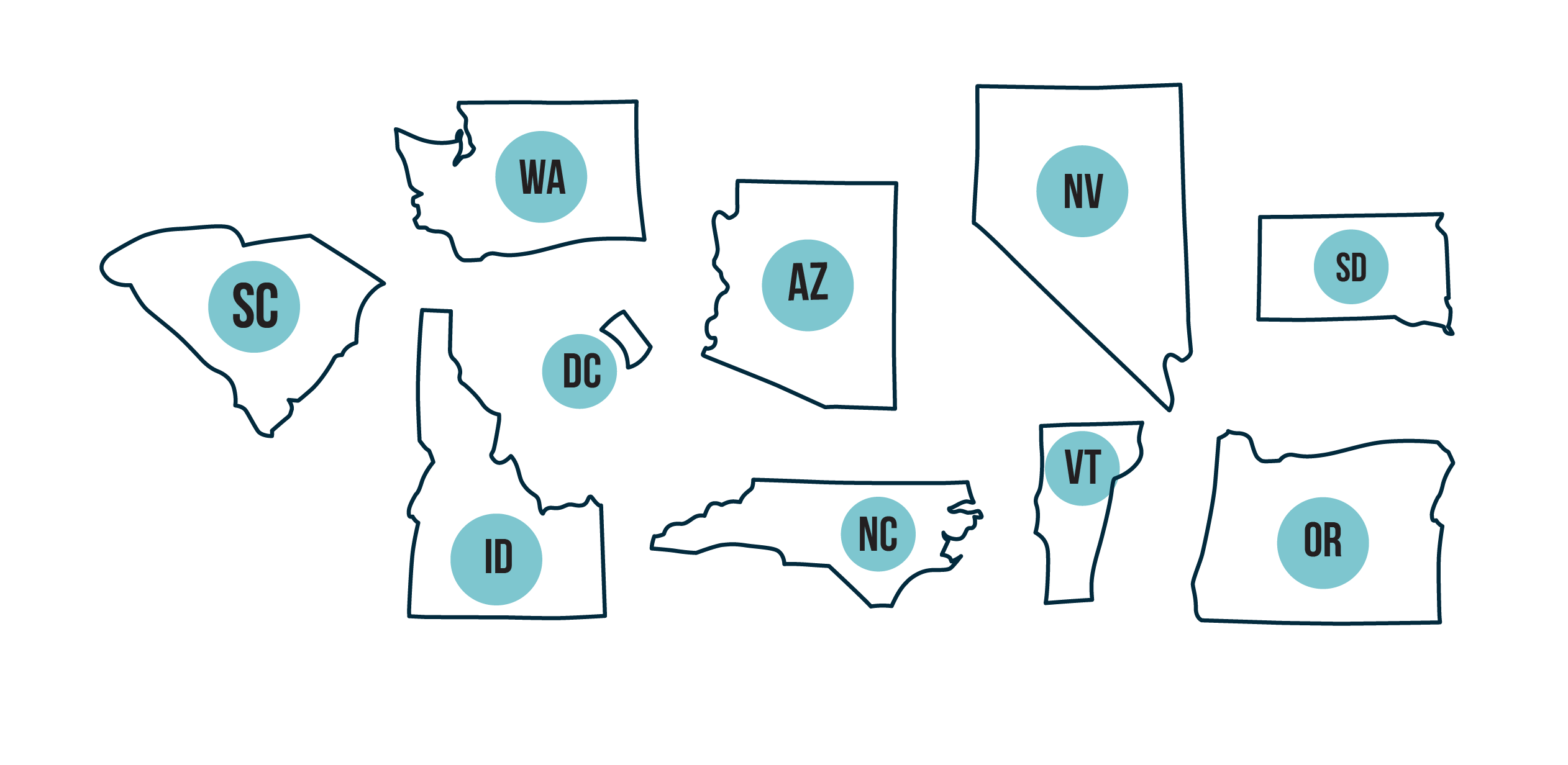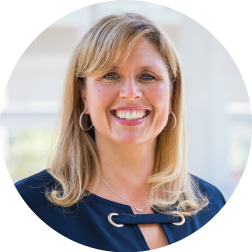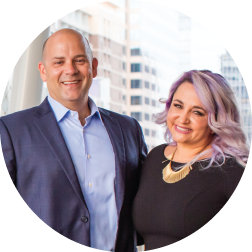From finding the right home to packing and selecting the right school for the kids – Teresa Boisseau and Chris Ott know moving cross-country can be stressful. That’s why the brother and sister duo, owners of The Ott Group, start every relocation with an insider’s tour of Austin.
They spend hours driving through Zilker Park, to Lake Travis, into the Hill Country and then to a local eatery – introducing clients to Austin’s eclectic neighborhoods.
“Almost every time, there’s a look on their face of relief and surprise that someone’s helping them look for a lifestyle, not just a house,” says Chris.
Over the last 30 years in the tech-centered Texas capital, the Otts have relocated some of the country’s largest workforces – Google, IBM, Apple – and their hands-on, personalized approach has paid off. Of the thousands they’ve relocated, many have been repeat clients. They’ve also benefited from referrals.
It’s a niche the Otts have found satisfaction and success in, and they’re not alone. Across the country, Keller Williams agents are providing similar top-tier service to families relocating for work, and they’re leaving a lasting impression.

Relocation: A Booming Industry
The $25 billion a year relocation industry is one that’s expected to see steady demand. The business world has been marked by a flurry of corporate headquarter relocations as companies look to reduce costs and attract the best talent. Often, they take a sizable number of workers with them.
Most recently, Amazon announced plans to relocate its entire Seattle-based worldwide operations team to Bellevue, Washington. In 2018, fast food giant Chipotle moved its headquarters from Denver to California. One survey of 435 relocation personnel at small, midsize and large companies found 2017 to be an overall positive year for the industry. Nine out of 10 companies reported their relocation budgets either held steady or increased. Results from the 51st Annual Atlas Relocation Survey were similarly optimistic for 2018, with four out of 10 organizations expecting increases in budgets and volumes.

Over the last few years the Otts have seen a steady flow of relocation clients. The siblings learned the business early on, from their real estate mother, Elizabeth Ott, who in the 1980s founded a group that specialized in relocations.
Over the years, they’ve become preferred agents for several major relocation companies – third parties that help corporations move employees. They’ve also formed partnerships with relocation specialists within companies’ HR departments. The Otts attend relocation industry conferences and advertise with the Worldwide ERC, a relocation services industry trade group. They pay a referral fee for each client they get from a relocation company, 35% to 40% of their commission. But, it’s worth it, they say.
“The fee can be eliminated by future business,” says Theresa. “Treat it like these people are your clients for life.”
And often, they are. Recently, a former Apple employee that Chris had relocated six years ago contacted him to transition to a smaller home. “They keep coming back for any of their real estate needs,” Chris says.
Make Customers Feel Unique
In the Dallas/Fort Worth area, Jay and Carissa Acker bring a wealth of relocation experience to clients. Co-founders of the Real Estate by Design Group, Carissa and Jay both spent years working for third-party relocation companies before they joined Keller Williams. When it comes to relocation clients, “people want to feel unique,” Carissa says.
One way the Ackers have earned business is by approaching smaller membership organizations. Many have an affinity program, a barebones relocation benefit designed to benefit both the organization and relocation company. But many times, Carissa says, members aren’t benefiting as much as they should be.
“We can give members much more,” she says. “I want to act as the relocation company.” For example, by working directly with an organization, she doesn’t have to pay a relocation company’s referral fee and can offer members a better rebate.
Jay suggests agents interested in corporate relocations connect with HR representatives or broker services employees from smaller companies.
“Make relationships with those people on a really small level,” he says. “Your end goal is to have as many conversations with people as possible.”
Each year
40 million Americans
move at lease once, many for work.
VT, OR, ID, NV, AZ, SC, WA, NC, SD, D.C.
The top states workers moved to in 2018.

70%
of millennials are willing to try out a new country as they progress in their careers.
Facts and Figures
In the U.S. each year, about 40 million Americans, or 14% of the population, move at least once, many for work. For Keller Williams agents, relocation clients are coming from across the U.S. and the world. Yet, the data does show there are hot spots when it comes to relocation.
In 2018, the top states workers moved to included Vermont, Oregon, Idaho, Nevada, Arizona, South Carolina, Washington, North Carolina, South Dakota, and the District of Columbia, according to United Van Lines, which has been tracking migration patterns since 1977. France, the U.K., the U.S., Australia, and Spain are the most popular countries, based on MoveHub data from more than 180,000 customers’ moves.
One wildcard for the relocation industry is millennials. They currently make up more than 30% of the American labor force. It’s a generation known for wanting choice and flexibility when it comes to how and where they work. The majority of millennials, 70%, also say they’re willing to try out a new country as they progress in their careers, according to data collected by PricewaterhouseCoopers.
Military Relocation
Charlene and Rustan Tongg often work with millennials in Hawaii, where the team specializes in military relocations. With repeat clients and referrals mixed in, relocations make up about 80% of their business.
Most important, they say, is to get their military relocation clients – who often move every few years – comfortable with the idea of owning versus renting. Many wait until they’ve transitioned out of the military to buy, but that can affect their buying power. They may have to wait years until they obtain job stability, or maybe their income has dropped since transitioning, and they can’t buy.

“Most service members aren’t taught to be wiser with their finances or to invest their BAH (Basic Allowance for Housing),” Rustan says. “We show them how real estate is an investment and we help them plan an exit strategy.”
For service members, finding a home often has to happen quickly, sometimes in a two to three-week period. Systems, technology, and the Tongg’s team structure lets them work efficiently to get clients into a home within that tight window.
Related Read: Defending The Dream: KW Agents Work to Advance Homeownership For Veterans
“Our fastest turnaround was three days from the time we met to getting into escrow,” Charlene says.
To help clients, the Tonggs are constantly looking for properties a client could rent when they leave, should they decide to keep their home as an investment property.
One of their youngest clients, Caleb Brecht, bought a five-bedroom home at 22, lived in the smallest bedroom, and rented out the remaining ones. With the rental income, he covered his mortgage and took home extra rental income. He saved most of his BAH and sold the property prior to leaving the island, walking away with more than $200,000 in combined appreciation growth plus saved BAH.
Another client, Mark Wade, had a short timeframe, a newborn, and a Great Dane. The Tonggs walked Wade through properties on their smartphones. When he arrived, he had the keys to his new home. Since then, Wade has referred four clients to the Tonggs.

For service-member sellers, the Tonggs create a timeline that allows clients to rent back so they’re able to sell their property before they receive their official orders and leave the island, saving them money. They also go a step further. They interview other KW agents to find a VA-experienced agent to serve their clients at their next duty station.
“It’s all because of this network we’ve created,” Rustan says. “We have clients now living in other states, and even other countries, and they’re continuing to refer us clients.”
The Experts

Theresa Boisseau
Austin, Texas

Chris Ott
Austin, Texas

Jay & Carissa Acker
Dallas, Texas

Charlene & Rustan Tongg
Honolulu, Hawaii